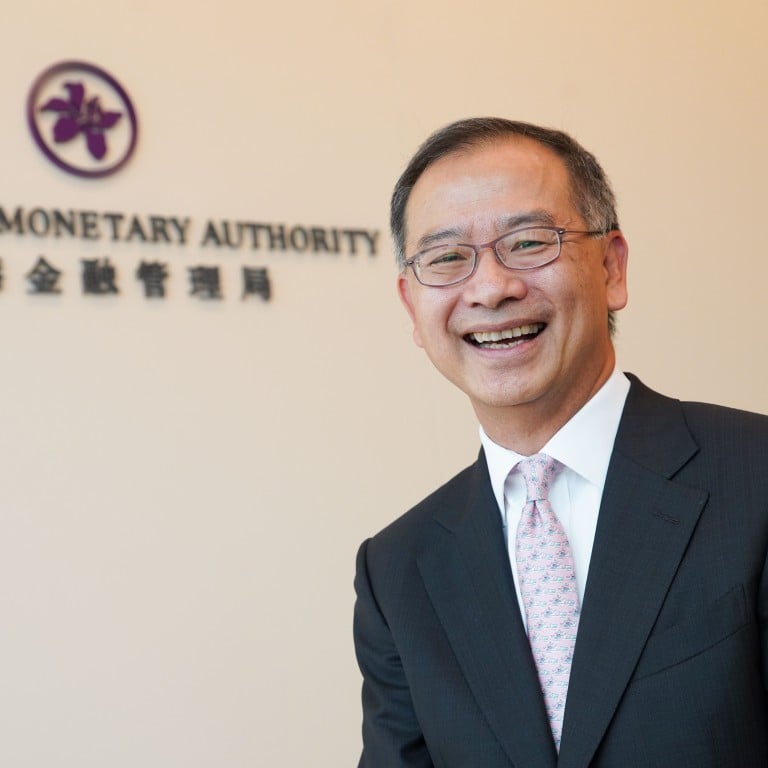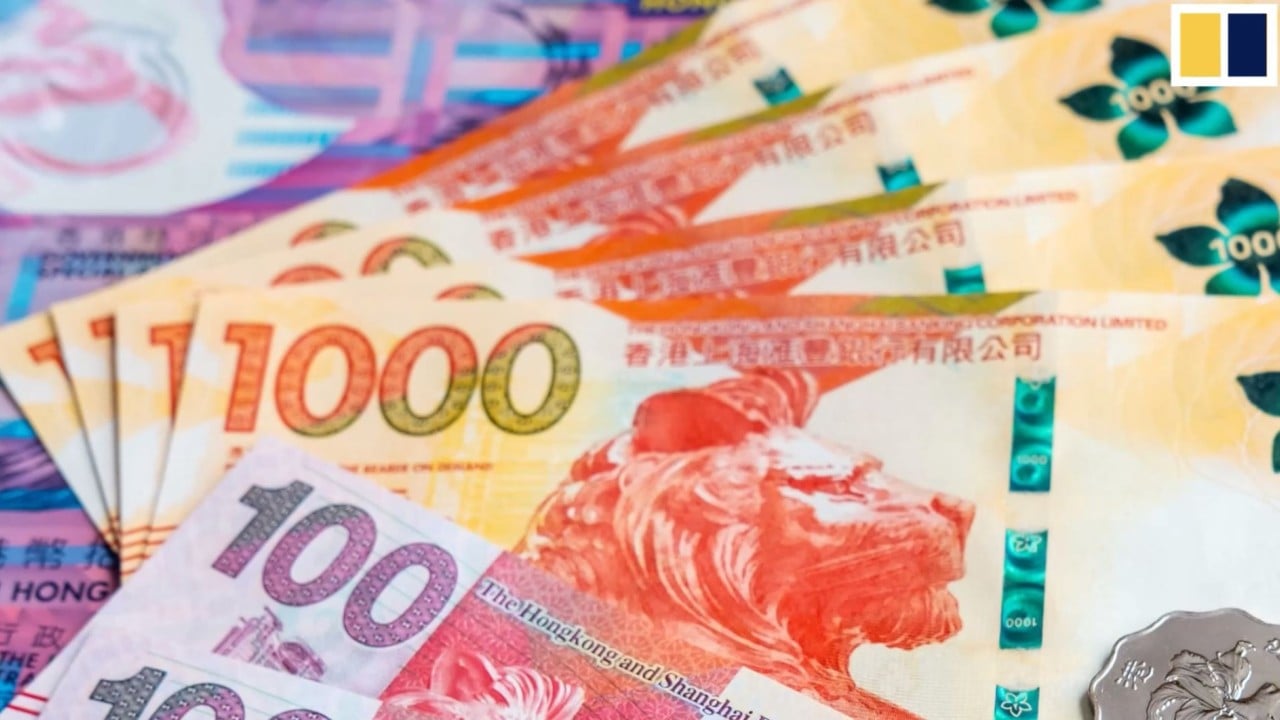
Hong Kong tells currency bears to watch out for mega IPOs as Kyle Bass capitalises on slump to tweet peg’s demise
- Hong Kong’s currency weakened to a one-year-low of about 7.77 per US dollar on March 8 as local stocks slumped from February’s peak
- Mega IPOs to be a magnet for capital inflows, just like in 2020 when US$50 billion entered the city and forced the biggest intervention since 2009: HKMA
That’s the message from Eddie Yue Wai-man, chief executive of the local de facto central bank, to currency peg doubters as the Hong Kong dollar lost 0.15 per cent against the greenback over the past three months, accelerating when the benchmark Hang Seng Index tumbled from its February 17 peak.
The Hong Kong dollar has been pegged to the US currency since 1983. The HKMA is obliged to intervene when the currency moves outside its trading band of 7.75 to 7.85 per dollar.
Bass isn’t only watching the market actions. He tweeted last week about ongoing strife in the city’s political space, highlighting tightening sanctions and a reassessment of Hong Kong’s position as a financial hub.
Yue, who joined the HKMA at its inception in 1993 and assumed the top post in October 2019, said much of last year’s inflows have remained in the city, dispelling concerns of capital leakage to Singapore or other rival financial hubs.
Reflecting on his promotion to the top job, the 54-year-old Yue said it was a nervous and challenging time as it coincided with rumours of a bank run.
“The lesson I have learned from the first week is that the HKMA has to use social media to address the public. This is the new way to address bank run rumours nowadays. This is very different from the old days when some heavyweight leaders were needed to help restore confidence.”
Since then, he and his team have used social media platforms to crack down on rumours and issue clarifications to protect public confidence in the banking system. Whether the HKMA will spar with Bass and his ilk in future remains to be seen.


